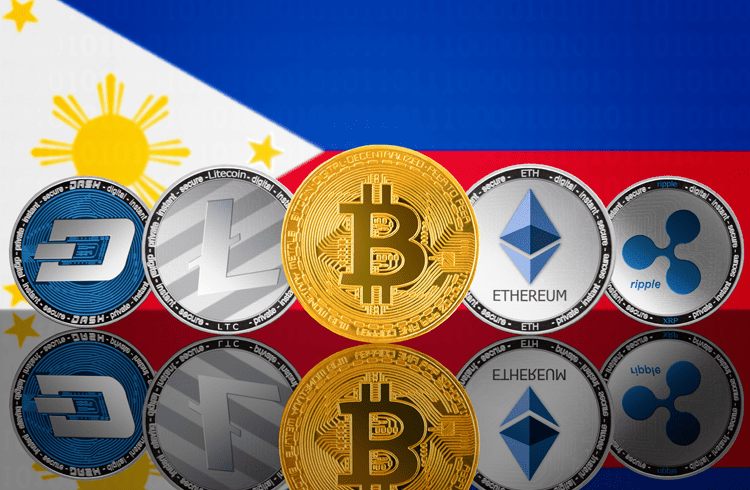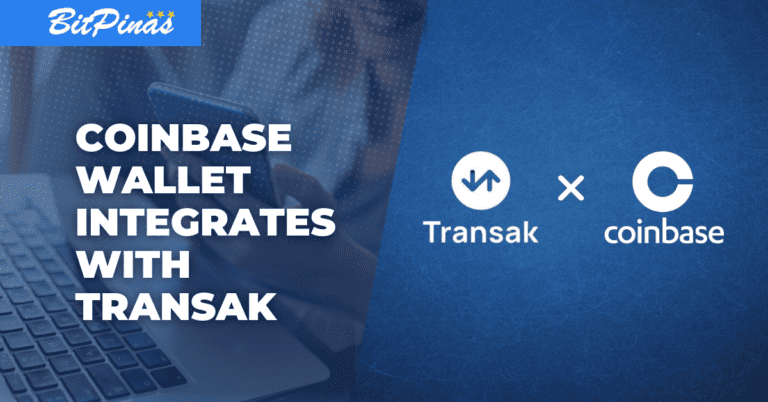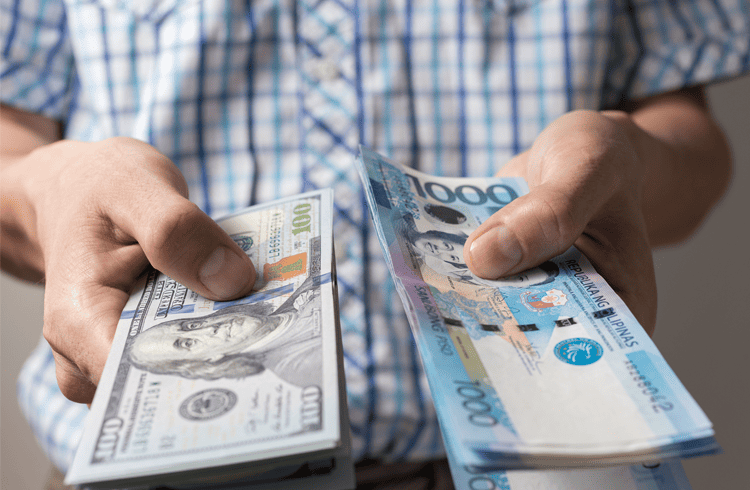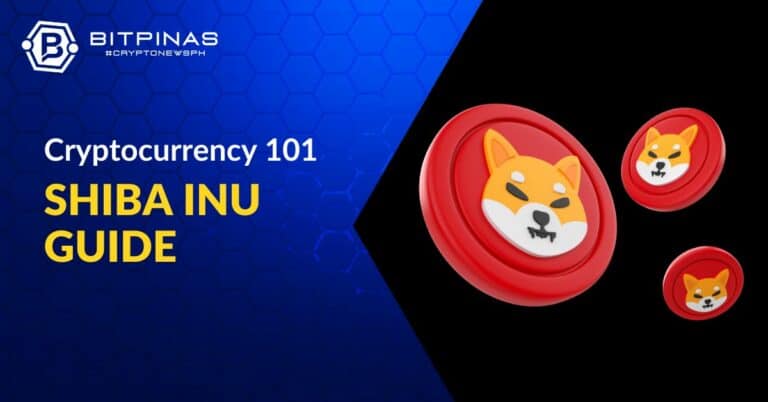(Updated October 2019) List of Cryptocurrency Exchanges in the Philippines
Updated Oct 2019: These Philippine cryptocurrency exchanges allow users to trade Bitcoin & other cryptocurrencies with Pesos (PHP) and vice versa.

Updated on:
- December 11, 2019 (minor update) to add Paylance
- October 10, 2019 to include updated status of the exchanges.
- April 30, 2019 to include more exchanges (and this table).
- June 7, 2019 to include a new exchange
- Other texts, paragraphs, and photos in this article may still reflect the original article when it was first published.
Note: This article will only list crypto exchanges that have a virtual currency exchange license from the Philippines’ Central Bank.
The Philippines is becoming one of the top countries in the world that offers a good location to build blockchain and cryptocurrency projects. According to Mr. Brock Pierce, a blockchain advocate, the country is a great place to build such projects because of its English literacy, its enormous opportunities, and a huge unbanked population.
Additionally, the country’s regulators are open to adoption of blockchain and cryptocurrencies. Currently, the Bangko Sentral ng Pilipinas (BSP) – the country’s Central Bank, and the Securities and Exchange Commission (SEC) are working towards regulating cryptocurrencies to protect the Filipino people.
Purchasing Bitcoin and other virtual currencies in the country is now made easier through available cryptocurrency wallets such as Coins.ph. There are also other options such as buying it through a BTC ATM or even over the counter. These options have a set price per token. What if you want to set your own price for the coin you want to buy or sell? This is where open book trading platforms come in.
What is Cryptocurrency
The first widely-known cryptocurrency is Bitcoin that was introduced in 2009 by an unknown programmer Satoshi Nakamoto. He announced that he was able to create a “peer-to-peer electronic cash system, a new electronic cash system that uses a peer-to-peer network to prevent double-spending.”
Bitcoin runs on a decentralized network, a public ledger, where every single transaction is recorded on a number of nodes. Who records these transactions? Miners. They do it by solving strong cryptography puzzles that are needed to confirm and record a transaction. After confirming it, it will then be sent to a network of nodes and add it to its database. Once it is confirmed and recorded, the transaction becomes irreversible.
With the creation of Bitcoin, a long list of other tokens followed. Ethereum’s token, ether, is the second crypto in terms of market capitalization. If Bitcoin is gold, ether is silver. (Although in the past, the “silver” is often associated with litecoin because both Bitcoin and litecoin have the same use case.)
Properties of Cryptocurrency
There are three properties of cryptocurrency. These properties set it apart from the usual fiat currency. In order to further understand the token, you also need to know its properties.
- Revolutionary Property – A revolutionary invention. A digital currency that runs on a decentralized peer-to-peer network. Secured by strong cryptography and math, and not by people or trust.
- Transactional Property – Cryptocurrency transactions are unique. It is immutable and cannot be changed unless certain conditions are fulfilled.
- Permissionless – You don’t need to ask permission from anybody to use cryptocurrency, mine, or even download necessary programs to run a node. It doesn’t need permission from central banks or governments.
- Anonymous – The only thing you will need in order to trade crypto to another is a public key or an address. It is either from a QR code or a string of random numbers and letters. It is impossible to connect real-world identities to the addresses*.
- Fast and Global – You can transfer Bitcoin or any crypto to anybody in the world in just a couple of minutes without the need of using a bank or any other middleman. It runs on a network of computers and it will not matter if you will transfer crypto to your neighbor or to the other parts of the world.
- Secure – Cryptocurrency funds are locked using a strong cryptography system. Even though a user’s public key is out in the open, it can only be unlocked with their private key.
- Irreversible – Every transaction is irreversible. If you send it to the wrong address, there is no stopping it. There is no safety net and no one can reverse the transfer for you.
- Monetary Property – Cryptocurrencies also has monetary properties. Although, it is different than your usual fiat.
- No Debt – Unlike the numbers in your bank account that represents debts and a record of IOUs, cryptocurrencies are money and is as real as gold but only digital.
- Controlled Supply – Cryptocurrencies such as Bitcoin has a limited supply. It has a maximum of 21 million tokens. This is also the same to many other cryptocurrencies but the max number varies. Since Bitcoin is likened to gold, it has a limited and finite supply. Other cryptocurrencies either have a controlled supply, limited supply, or finite supply.
State of Cryptocurrencies in the Philippines
The state of cryptocurrencies in the Philippines is looking bright. The two major regulators that are keeping their eyes open and focused on this new technology are the Bangko Sentral ng Pilipinas (BSP) and Securities and Exchange Commission (SEC).
The BSP released its first advisory on virtual currencies in 2014. It informed the public about its features and risks in dealing with cryptocurrencies. After three years, in February 6, 2017, the regulator then released a circular concerning virtual currency exchanges that are more favorable towards crypto. This circular is called BSP Circular 944 where licensed companies are allowed to legally exchange fiat to crypto and vice versa.
The SEC, on the other hand, is also busy giving out advisories to the public about entities that use Bitcoin and other cryptocurrencies for investment schemes (Click here for a list of SEC Advisories). The SEC is also developing draft rules on virtual currency exchanges. It noted that the BSP’s Virtual Currency Exchange (VCE) license does not include acting as a trading platform but is more on crypto to fiat transactions. It is also finalizing its rules on ICOs (initial coin offerings).
Read more: Philippines’ Blockchain Community Discusses SEC’s Draft ICO Regulations
How to Buy, Sell, and Trade Crypto
In the Philippines, it is easy to buy Bitcoin, sell, or trade. You can download an application like Coins.ph or Abra and then go to the nearest pawnshop or a 7-Eleven convenience store for cashing in. This is usually the most common way to buy BTC. There are also other ways to get cryptocurrency such as via Bitcoin ATM, prepaid Bitcoin, or even over the counter.
Read more: A Complete Guide on How to Buy Bitcoins in the Philippines
You can also buy, sell, and trade using a crypto trading platform, the subject of this article. All the exchanges listed here are BSP-licensed. This means they are based in the country, allowing users to do crypto-Php trades and even reach out to them via customer support.
Read more: How to Use Coins.ph’ CX Platform to Buy, Sell, or Trade Cryptocurrency
What is a Cryptocurrency Exchange
It is a trading platform where users can buy, sell, and trade cryptocurrencies. An online platform where users can exchange cryptocurrency to another cryptocurrency or fiat. These exchanges charge a fee for each transaction.
Types of Exchanges:
- Traditional – A platform where buyers and sellers trade cryptocurrencies based on the current market price. It usually charges a fee after each transaction. Some of them even offer margin trading.
- Crypto Brokers – These are like your average money changers. You exchange your crypto to another crypto or to fiat. The price is set by the brokers.
- An example of this is Shapeshift and Changelly.
- Direct Trading Platforms – These are peer-to-peer trading between buyers and sellers. Unlike the traditional crypto exchanges, it doesn’t have a platform but instead does a direct exchange or over the counter exchange. Buyers and sellers can set their own price. If you’re going to use this kind of platform, make sure to check the current market price of the crypto before making a trade.
- An example of this is LocalBitcoins.
- Crypto Funds – These are pools of funds that are professionally managed digital assets.
List of Cryptocurrency Exchange Philippines
| Crypto Exchange | Status | (Currently) Supported Cryptocurrencies* |
| B-Expro / B-Express | Not Yet Live | BTC, ETH (to PHP) |
| Bitan MoneyTech | Website Live | BTC (to PHP)*** |
| Coins Pro | Live | BTC, BCH, ETH, XRP (to PHP) |
| Coinvil | Live | BTC, ETH, XRP, LTC, VRG, CSMT (to PHP) |
| Citadax | Not Yet Live | BTC, ETH (to PHP) |
| GOW Exchange | Website Live | BTC (to PHP)** |
| Juan Exchange | Website Live | BTC, ETH, USDT (to PHP) |
| PDAX | Beta | BTC, XRP, LTC, BCH, ETH (to PHP) |
| VHCEX | Live | BTC, ETH, VHC, VHW, OSE, HWGL, OVO, XEM, OSV, REVS (to PHP) |
| COEX STAR | Live | BTC, ETH, LTC, BCH, BTG, XRP, QTUM, RVN, EOS, ENJ, TRX (to PHP, KRWC) |
| Paylance | Live | BTC, USD (to PHP) |
*based on what’s listed on their website or what they confirmed with our website BitPinas. **assumption only as we have not seen reports of what GOW will support. ***assumption only because the website only shows that they will cater to fiat to crypto and crypto to fiat. So it is not a stretch to think that they will offer Bitcoin to PHP and vice versa.
Coins Pro

First on the list is Coins.ph’s Coins Pro. It is available to Coins.ph users.
Using your Coins.ph account, you can transfer PHP from the Coins app to Coins Pro. In order to transfer funds from your Coins.ph wallet to your Coins.pro account, you have to go to Coins.ph’s Pay Bills then scroll down up to Exchange. Choose whether to send your PHP, BTC, ETH, BCH, or XRP. Put the amount you’re comfortable with and proceed.


Coins Pro also allows users to trade fiat to Bitcoin cash, ripple, litecoin (soon), and ethereum. Because it is connected to Coins.ph, users can easily fund their Coins.pro accounts via 7-eleven, GCash, and partner banks.
Read more: How to Use Coins.ph’ CX Platform to Buy, Sell, or Trade Cryptocurrency
Official Website: https://pro.coins.asia/
COEX STAR

Recently launched COEX STAR is the trademark of BSP-licensed ABA Global Philippines, opening with 11 Crypto-PHP trading pairs including ENJIN and EOS. There are also crypto trading pairs for BTC, ETH, and KRWC. At the moment COEX STAR is giving out incentives for new users. Check out this article to learn more.
Official Website: https://coexstar.ph/
Coinvil

Coinvil (Coinville) received its virtual currency license in March 2019. In an interview with BitPinas, it plans to introduce more blockchain projects to the Philippines and help introduce local projects to its partners abroad, particularly in South Korea. Some of its PHP Trading Pairs include BTC, ETH, XRP, LTC, VRG, and CSMT.
Website: https://coinvil.ph/
PDAX

The Philippine Digital Asset Exchange (PDAX) recently received its VCE license from the BSP in September 2018. It is now live.
PDAX said it will utilize the same order-matching technology used in stock exchanges to match buyers and sellers.
PDAX users can trade pesos for Bitcoin, Bitcoin cash, ethereum, ripple, and litecoin. More coins are set to be announced soon. PDAX also listed 7-eleven, GCASH, the SM Store, and partner banks as ways to fund user accounts.
Official Website: https://pdax.ph/
Citadax

Citadax is a crypto trading platform by SCI Ventures, the company behind BuyBitcoin.ph, bitbit.cash, and rebit.ph. Not much is known about Citadax at the moment, but its website currently allows users to join the waitlist.
Official Website: https://citadax.com/
VHCEX

In 2018, VHCEX (operating under Virtual Currency Philippines Inc) has received the virtual currency license from the BSP. The site has markets for BTC, ETH, VHC, VHW, OSE, HWGL, OVO, XEM, OSV, REVS, as well as PHP trading pairs like BTC/PHP, ETH/PHP, XEM/PHP, etc. It is currently partnered with ECPay to soon allow cash-in and cash-out to ECPay Kiosks nationwide.
Website: https://vhcex.com
Juan Exchange

Juan Exchange (operating under Zybi Tech) has received a license to operate a virtual currency exchange in 2018. The website has PHP, BTC, USDT, and ETH markets. They had a grand launching last May 2019.
Website: https://juanexchange.com/
B-Express

B-Express already operates an over-the-counter Bitcoin service but recently received a license from the BSP this March 2019. In an interview, B-Express said one of its main focus is the development of its app to ensure its customers will have a smooth trading experience on mobile phones.
Website: https://www.bexpro.ph/
GOW Exchange

GOW stands for Global Overseas Worker. Its subsidiary Etranns received the VC license in 2018. GOW said in interviews that it wants to focus on institutional investors.
Website: https://gow.com
Paylance

Paylance highlights that you can use its service if you want to use cryptocurrency for your employee payrolls, disbursement, and other organizational transactions. Simpy put, if you want to pay someone in crypto, and that someone is possible an employee of yours, Paylance is the exchange to go to. The website is under Bloom Solution’s VCE (Virtual Currency Exchange) license from the BSP.
Website: https://paylance.com
Note: This list doesn’t include exchanges that will operate in the Cagayan Economic Zone Authority (CEZA). CEZA-based crypto exchangese will service users outside the Philippines.
More Information:
Check out the following articles that provide more information about the exchanges above:
- [Summary] Cash In and Cash Out Fees of Crypto Exchanges/Wallets in the Philippines
- Daily/Monthly/Annual Transaction/Cash In/Cash Out Limits of Crypto Exchanges/Wallets in the Philippines
Overall
Having crypto exchanges based in the country will let Filipinos trade their Philippine fiat to cryptocurrency without needing to use a foreign crypto exchange. This will save the Filipino users money in terms of fees as they no longer need to trade their fiat to BTC and then make a trade.
With the rate SEC and BSP are going with their regulations, they are giving the Filipino users more confidence and security in doing trades. These regulations not only give security but they help spread awareness while promoting innovation.





